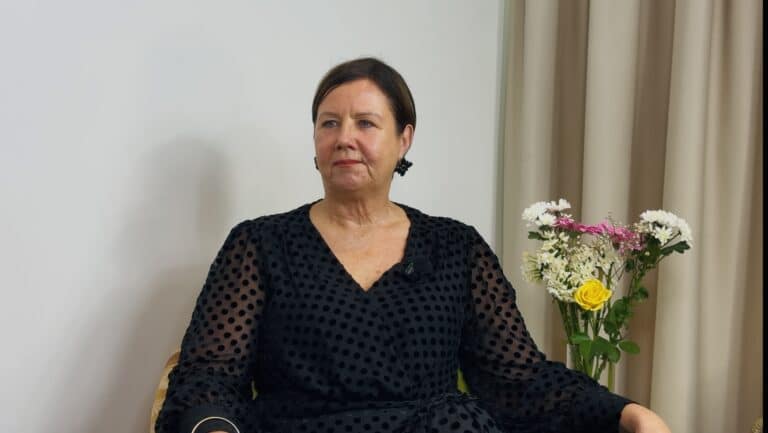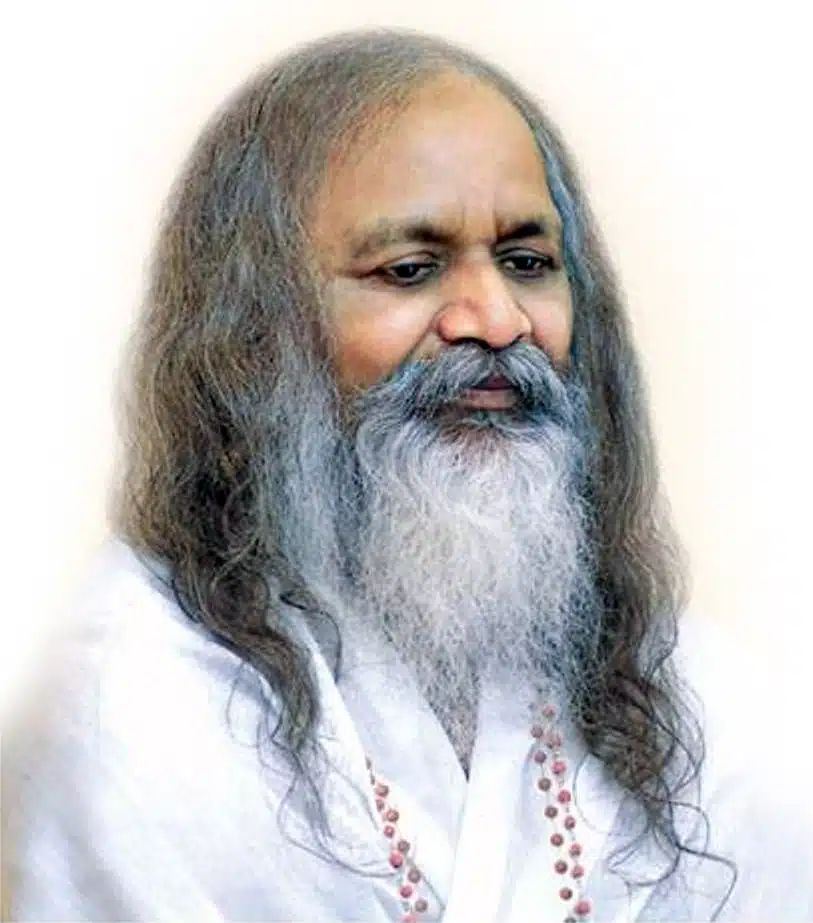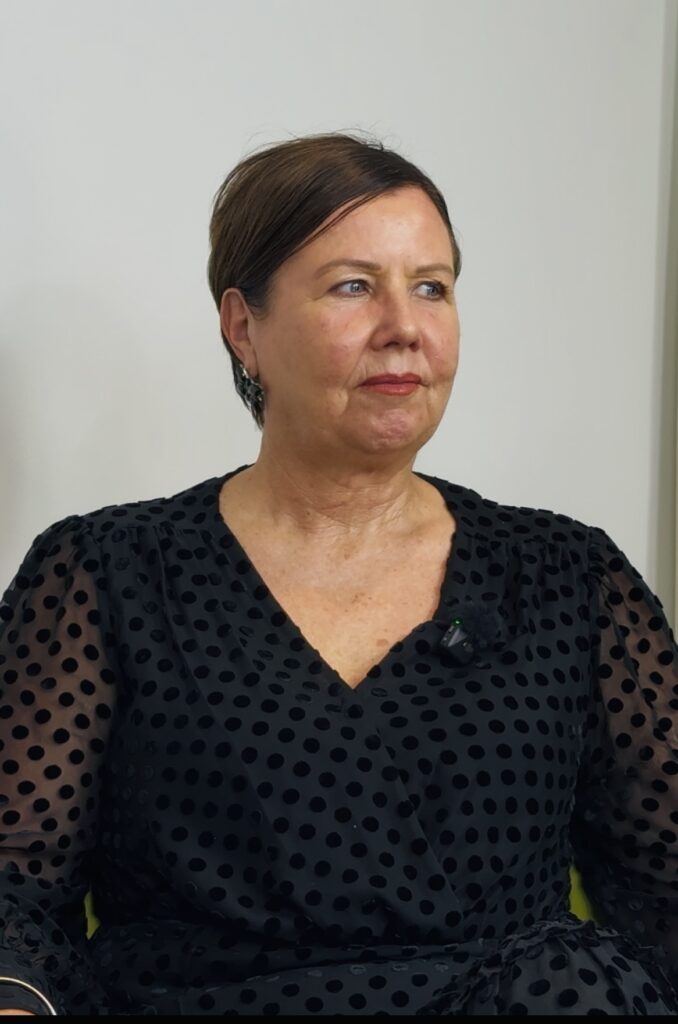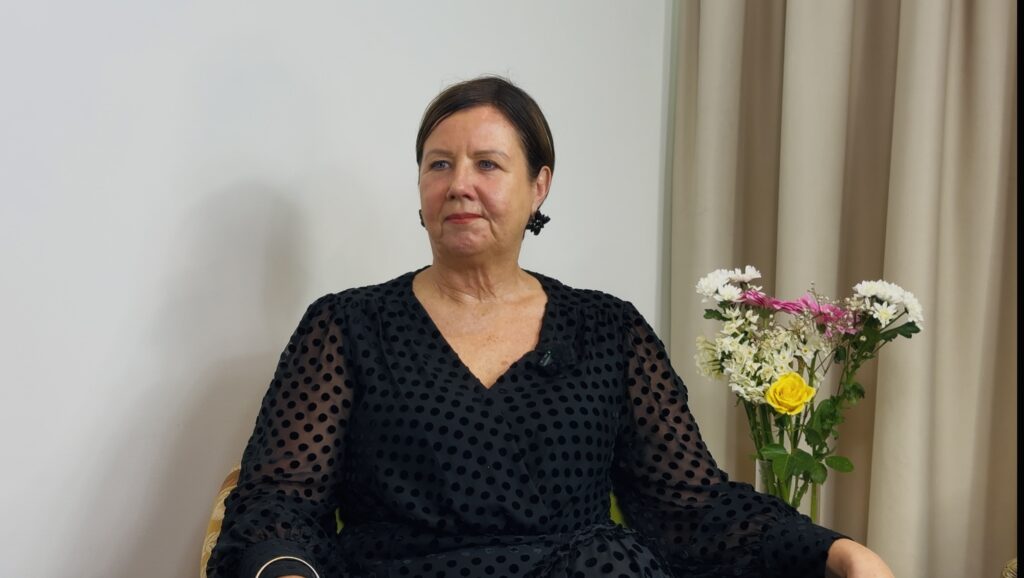
 Founded by Maharishi
Founded by MaharishiMahesh Yogi
 Founded by Maharishi
Founded by MaharishiAn Australian executive change manager says the Transcendental Meditation® (TM) technique has given her clarity and allowed her to be authentic.
As an executive change manager, Rosemary Monahan uses the Kubler-Ross change model, which identifies five stages relating to change such as denial, anger, bargaining, depression and acceptance, to help organisations transform by addressing fear and resistance to change.
Rosemary sat with the host of Stillness in Success podcast, Mustafa Nuristani, to discuss how with the powerful TM technique she manages change within which enables her to take major organisations to the next level.
“I help organisations through transformations. So I help the organisation understand what that change is about, what are the goals, the benefits,” Rosemary said.
“And then I work through a transformation program on how we take the organisation from where it is today to where it needs to go in the future. So I tailor the program to manage change,” she said.
Rosemary always wanted to make impactful change and a chance encounter led her to becoming a change manager for organisations in transition.

“In my early days, I used to look at how organisations were structured, and I always thought, ‘wouldn’t it be great to be able to help managers to do this better’,” Rosemary said.
“Because they were always under stress and didn’t have the time to do that. And then one of my roles was with a consulting group where I was introduced to change management.”
Early in her career as a change manager, Rosemary realised that real change begins from the experience of the field of non-change within.
“It was the mid 1990s and I just had this feeling there was more that I wanted to know about,” Rosemary said.
“I can’t really explain it. It’s just this feeling of being part of a bigger wholeness, wholeness of the universe. And then I kept reading, and finally came across TM,” she said.
“And I went, ‘yes, that sounds amazing’. It just resonated to me straight away.
“I think it was the explanation of TM and consciousness and the integration of unity of yourself – the mind, body and consciousness and the science behind it.
“And I just went, ‘wow, this is exactly what I’ve been wanting to learn more about’.”
Rosemary began to practice TM in the 1990s. She said Transcendental Meditation gave her the ability to manage change in organisations by staying stable and clear from within.
“It’s the clarity of myself. So just letting go of everything else,” Rosemary said, speaking of the benefits of the TM technique.
“When I come out of Transcendental Meditation, I have a feeling of calm and clarity, like I can think really clearly,” she said.
“TM eliminates the stuff that you don’t need in the day and helps you to focus really well and just be yourself.
“You know there’s a saying ‘be yourself’, you need to come out of what you’re not. I love that saying. And TM does just that.”

Rosemary also works at the Australian Rotary Passport program focusing on humanitarian work in Cambodia, Timor-Leste, and PNG, including scholarships and infrastructure projects.
“I find it extremely rewarding because it’s so tangible and we have the students that attend our meetings, and their smiles and the appreciation are incredible,” Rosemary said.
“We are a gateway for people who want to be able to do work to help the people in these countries,” she said.
“We work with an NGO that looks after young people of Cambodia and provides scholarships. So there are sponsors, like myself, who will sponsor students from year 11 through to the end of university.
“And that’s the beauty is that these young students are going to be the leaders in their own countries. We also get Foundation grant funding for building infrastructure like water tanks, latrines within the rural schools where they don’t have those amenities.”
To learn more about Transcendental Meditation visit tm.org.au and to connect with Australian Passport Rotary Club of Melbourne.